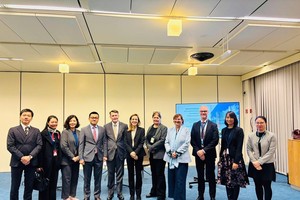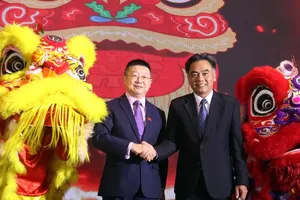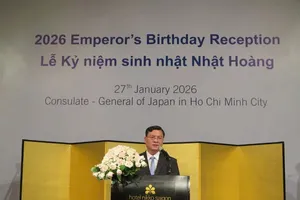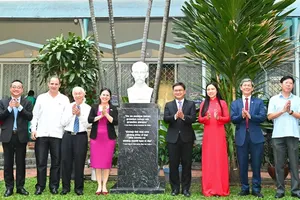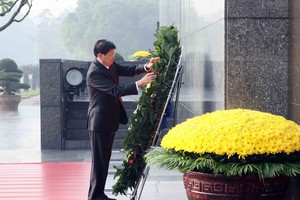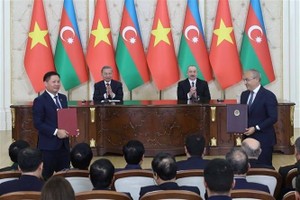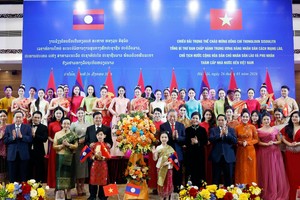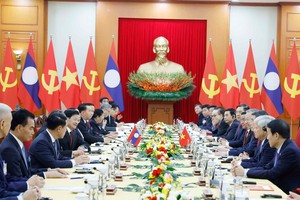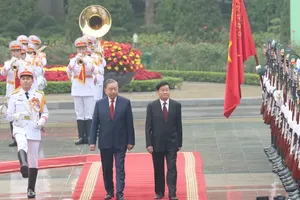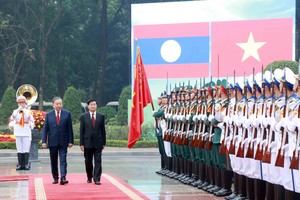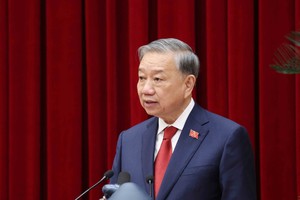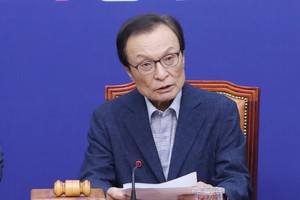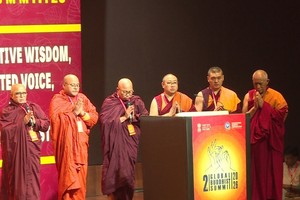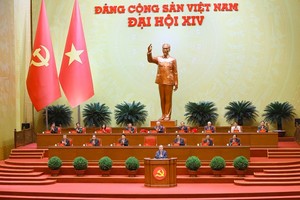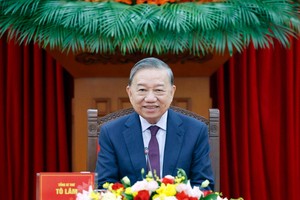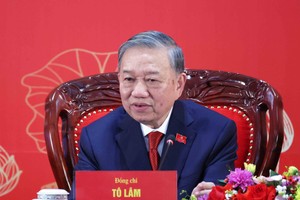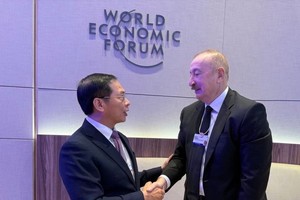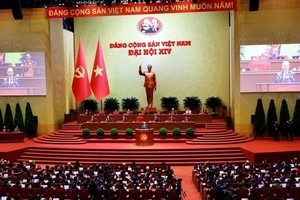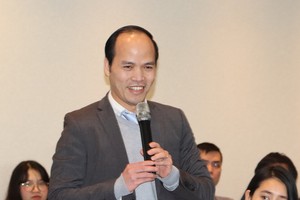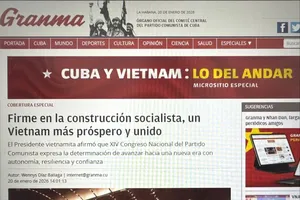South Sudan's president urged his people to forgive the Muslim north for a devastating 1983-2005 war, as partial results trickling in on Sunday from a landmark vote showed a landslide for secession.
In his first public pronouncement since the referendum wrapped up in the mainly Christian region on Saturday, president Salva Kiir joined thousands of faithful in giving thanks for the week-long independence vote and praying for their nation-in waiting.
Speaking from the pulpit of Saint Theresa Roman Catholic cathedral in the regional capital Juba, Kiir said: "For our deceased brothers and sisters, particularly those who have fallen during the time of struggle, may God bless them with eternal peace.
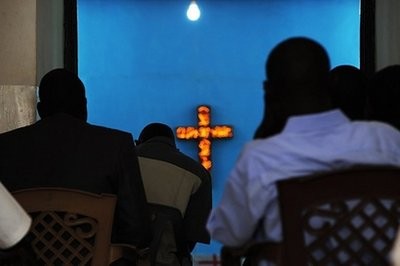
"And may we, like Jesus Christ on the cross, forgive those who have forcefully caused their deaths."
An estimated two million people died in the 22-year civil war, the latest round in five decades of conflict between the south and the mainly Arab north that has blighted Africa's largest nation.
The week-long independence vote was the centrepiece of the 2005 peace agreement that ended the war.
The southern leader sat smiling in a pew at the front holding a Bible as Archbishop Paulino Lukudu Loro blessed a mock ballot box at the altar.
"We pray that the will of Sudan will come out," Lukudu said. "For those doing the counting, don't mix, don't cheat, don't steal."
A priest had earlier offered a "prayer of gratitude for the peaceful voting of the referendum."
Loudspeaker trucks criss-crossed the dirt tracks of Juba urging south Sudanese to celebrate as partial results posted outside the city's larger polling stations showed a huge majority for independence.
There was no way of knowing how representative the results were of the vote in Juba, let alone of south Sudan as a whole. Much of the region is remote countryside where illiterate herders range over big distances with their livestock.
The final result to determine whether the south secedes to become the world's newest country in July is not expected before next month.
But exultant policeman John Gadet proclaimed: "We have done it, we have won, we are free," as he read the results posted outside the polling station set up by the tomb of veteran rebel leader John Garang, who signed the 2005 agreement shortly before his death.
The station's D section recorded 3,066 votes for secession to just 25 for union with the north.
Other polling stations in Juba where counting lasted into the night mirrored the result. At Juba University it was 2,663 votes to 69. In the city's Hay Malakal neighbourhood it was 1,809 to 75.
A UN panel set up to monitor the referendum cautioned that "while the Sudanese would want to know the outcome of the referendum quickly, we urge the people of Sudan to be patient and be aware that only the results announced by the referendum authorities are official."
US President Barack Obama congratulated south Sudan for what he called an inspiring referendum, but urged calm as an expected secession is worked out.
"The sight of so many Sudanese casting their votes in a peaceful and orderly fashion was an inspiration to the world and a tribute to the determination of the people and leaders of south Sudan to forge a better future," Obama said.
"We urge all parties to continue to urge calm and show restraint as the parties work to complete implementation of the 2005 Comprehensive Peace Agreement."
The US president was alluding to the raft of issues that still have to be agreed before the south achieves independence, including citizenship, borders and currency, as well as the future of the disputed district of Abyei on the northern border.
The south's internal affairs minister Gier Chuang was to travel to the northern town of Kadugli on Monday for talks with Interior Minister Ibrahim Mohammed Ibrahim and leaders of Abyei's feuding Ngok Dinka and Misseriya Arabs aimed at ending deadly clashes in the district.
Fighting between the Arab nomads and the settled pro-southern farmers has claimed up to 38 lives in the past 10 days and there have also been attacks against buses bringing southerners home from the north.
"We have spent so many years bleeding in the bush and losing our close friends and brothers both north and south will have to think twice about war," the southern minister said before heading to the talks.
"We are working for a peaceful stable south Sudan."
